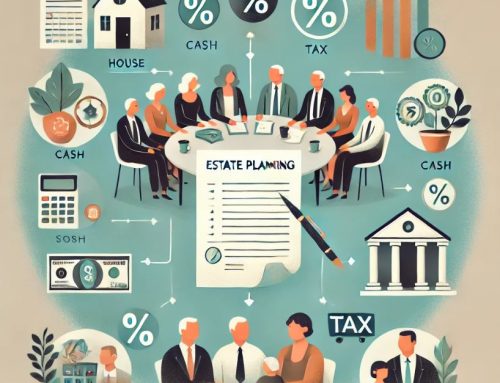Did you buy your home many years ago? Or have you been in your current place for a few years? There are plenty of reasons to sell and seek out a house that is smaller and one that fits your lifestyle. On the flip side, there are reasons you may want to stay in your home.
Now that you are in retirement or are nearing retirement, the mortgage may be paid off or you might have significant equity in your primary residence. Much goes into a decision to sell your home, and the process may seem daunting if you have lived in your house for years.
Here are some questions to think about.
- If we move, where do we want to buy? What are housing costs in my neighborhood versus an area we are considering?
- Do I want to be near family members? Which ones?
- Should we pay off the mortgage or consider a reverse mortgage?
- What are the services that will be available in the area we are considering? What amenities are important to us, including restaurants, shops, recreation, and entertainment?
- Are the medical services I need accessible?
- Do we need the equity in our home to help with retirement?
- Does the emotional attachment to a home we’ve lived in for many years outweigh the advantages of a new home?
- Does the prestige of a larger home counter the advantages of downsizing?
- Do I want to consider a retirement community?
Let’s look at some of the advantages and disadvantages of moving and downsizing. These ideas are not all-inclusive but will help organize your thoughts.
Reasons you might consider downsizing
- The number one reason why people downsize is to save money, according to a survey by Homes.com. Baby boomers, Generation X, and millennials all ranked it as the top reason.If you are still paying on your mortgage, the sale of your primary residence could wipe out your debt and leave you with cash. That’s cash you may put towards retirement, travel, savings, or any number of items. A smaller home that’s better adapted to your lifestyle may also reduce expenses, such as utilities. This will further reduce your monthly cash outflow. Reducing your monthly upkeep gives you options. It will allow you to either save money or spend on lifestyle choices that are fun and enrich retirement. If you are paying over 30% of your income on housing and maintenance, you might consider a home that puts less pressure on your budget.
- My current place is too big. In the same survey, “my home is too big/previous space is too hard to clean or maintain” were cited as the number two and number three reasons to downsize. Not surprisingly, boomers saw this as a more important factor.
- Your current house no longer meets your needs. The large yard for the kids contains special memories, but upkeep has become a hassle. Or, it’s becoming increasingly difficult to shovel snow off the long driveway, and cleaning rooms and bathrooms that are rarely used is time-consuming. What about stairs? You enjoy having the distance and solitude of a second floor, but you now find that stairs are becoming increasingly challenging. The thought of having everything on one floor has become increasingly appealing.
- You are the oldest person in your neighborhood. Young families keep you young. However, many of the neighbors you shared holidays and meals with have moved away. The families that made your neighborhood “your neighborhood” are gone. Is it time to consider a retirement community with an active association that might reduce the loneliness that sometimes accompanies retirement?
- Your career and company no longer dictate where you live. Younger folks may have the option to telecommute, while those in retirement may no longer be tied to the city and state where they live. Are there new locations you might consider? A new adventure is always exciting. You are an explorer in a new land. But there are always drawbacks to any proposition you are considering. Let’s go in with our eyes open.
Potential drawbacks to downsizing
- We tend to overestimate the value of our home. This is common. “Did you see what the Smith’s sold their home for? Our home is so much more appealing.” That may be the case, but what you value may or may not translate into a higher sales price. Various sites online can help you estimate the value of your home, but these are ballpark estimates. A good realtor can help you realistically estimate the value of your home.
- Conversely, we tend to underestimate the cost of a new home. The latest upgrades in a kitchen and master bathroom will add to the cost of a new house. Plus, that extra bedroom could come in handy for guests or make the perfect office. Sure, they may be worth it, but let’s budget for them. If you are considering a new home, a smaller place can reduce utilities, but factor in the cost of a monthly HOA if the community you are interested in is governed by one.
- Will you owe taxes? Most individuals and couples can exclude the first $250,000 and $500,000, respectively, in profits from taxes. Generally speaking, you must have owned the house and have used it as your primary residence over the last two years. As with any tax matters, complexities may arise. Please feel free to consult with your tax advisor.
- Factor in the costs to move. Moving is not cheap. You will have expenses related to selling your home, buying a new home, and moving to a new location. According to Moving.com, the average cost of a long-distance move is $4,890 (based on a two to three-bedroom move of approximately 7,500 pounds with a distance of 1,000 miles).
- Time to declutter. You may look forward to downsizing, but that means less space for your pictures, art, furniture, heirlooms, and more. Parting with long-term possessions can be a difficult process for some folks.
- Less space may feel cramped. Do you entertain friends and family often? Have you become accustomed to extra space? Do you sometimes have overnight guests?
You may miss the big family room or dining room in smaller quarters, and you’ll have less space when family or friends join you for an extended visit.
Many folks will decide to stay in their home. For others, a change is welcome. Our goal is to help provide you with some of the advantages and drawbacks as you consider a life-changing decision.






